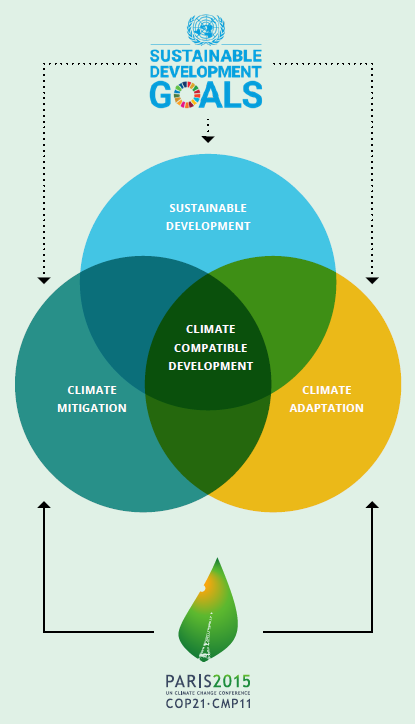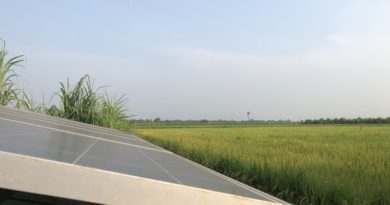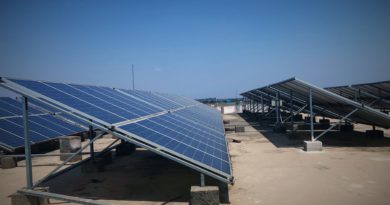Beyond COP 26- Actions for our Survival
The 26th United Nations Climate Change conference, held at the SEC Centre in Glasgow, Scotland, United Kingdom, from 31 October to 13 November 2021. This is being considered the most happening Climate Change Conference worldwide in recent time. It was delayed for a year due to the COVID 19 pandemic with a lot of hope to take drastic steps to maintain the global temperature increase below 1.5°C above pre-industrial levels with a participation of around twenty-five thousand delegates from nearly 200 countries.
There were deliberations to strengthen climate actions in the 03 Pillars such as
- Adaptation – The process of adjustment to actual or expected climate and its effects. In human systems, adaptation seeks to moderate or avoid harm or exploit beneficial opportunities. In some natural systems, human intervention may facilitate adjustment to the expected climate and its effect. It was emphasized during the deliberations.
- Finance – was extensively discussed throughout the session and there was consensus on the need to continue increasing support to developing countries some of which are least polluters but most vulnerable to climate change negative effects
- Mitigation – A human intervention to reduce the sources or enhance the sinks of greenhouse gases (GHGs). The persistent gap in emission has been identified and parties collectively agreed to work to reduce the gap.
The concluding remark of the UK President of COP 26, Mr. Alok Sharma explains the success or failure of this most sought-after international climate conference, “we can now say with credibility that we have kept 1.5 Degree alive. But its pulse is weak and it will only survive if we keep our promises and translate commitments into rapid action”.
The message is clear we have to walk the talk. The author attempts to mention what we need to keep in mind and act for our survival: –

- It’s a code red for humanity: On Aug. 9, the United Nations released its climate change report. The earth is in a danger zone. In the 3,000-page report, more than 200 scientists identify warming as responsible for sea-level rise and more extreme weather events. In short, the report claims humans have caused global warming, so can we reverse it? The report says we are in a code red, but it tells policymakers what they can do to slow down the warming.
- But the author of this article thinks that the action is required across all the sectors and all stakeholders.
- Development should be climate-compatible – means both climate actions and sustainable development goals (SDGs)move together; there should not be any contradictory approach that creates negative side effects. For example, utilizing Nature-based Solutions (NbS) to promote climate adaptation can not only reduce climate risks but also support the development of healthy and productive ecosystems.
- Some of the low-hanging fruits are reduction of the methane emissions, which accounts for one-third of global warming; Energy efficiency as the “first fuel” and usages of Solar Energy for achieving high ambition climate goals, improving quality of life, and creating jobs at all levels from our daily life to the industry and public utilities.
References:
- 2021 United Nations Climate Change Conference – Wikipedia
- SYRAR5-Glossary_en.pdf (ipcc.ch)
- Infrastructure for Climate Action, UNOPS




As it is known that human action is a larger cause of climate change, we must get together to react for slowing down the effects. The increase in temperature mainly due to the rarefication of the ozone layer, paving the way to a high amount of sun heat reaching the earth is responsible for the rise in sea level together with subsequent events of floods and extreme droughts and hence food insecurity. It is now up to the nations to choose between good and evil.
But the most surprising is that many countries do not seem to be ready to switch to solar energy solutions and action still needs to be carried out at this particular point if we really intend to replace fossil energy sources by renewable sources and actively contribute to maintaining an acceptable rise in global temperature.
Pingback: Solar PV Projects Are Beyond Just Electricity Production - SolarPost
I would like to work with you as a local solar service provider. I’m an Electrical Engineer with an an expertise in Solar Powered Water Systems technology from the Polytechnic University of Valencia. I have a sound understanding of how to design and monitor solar systems both for water pumping in irrigation or water supply or the provision of electricity. I also have a sound experience in civil and water resources engineering but also a sound level in higher mathematics and physics. I fluently speak English and French. I live in Niamey, Niger Republic;